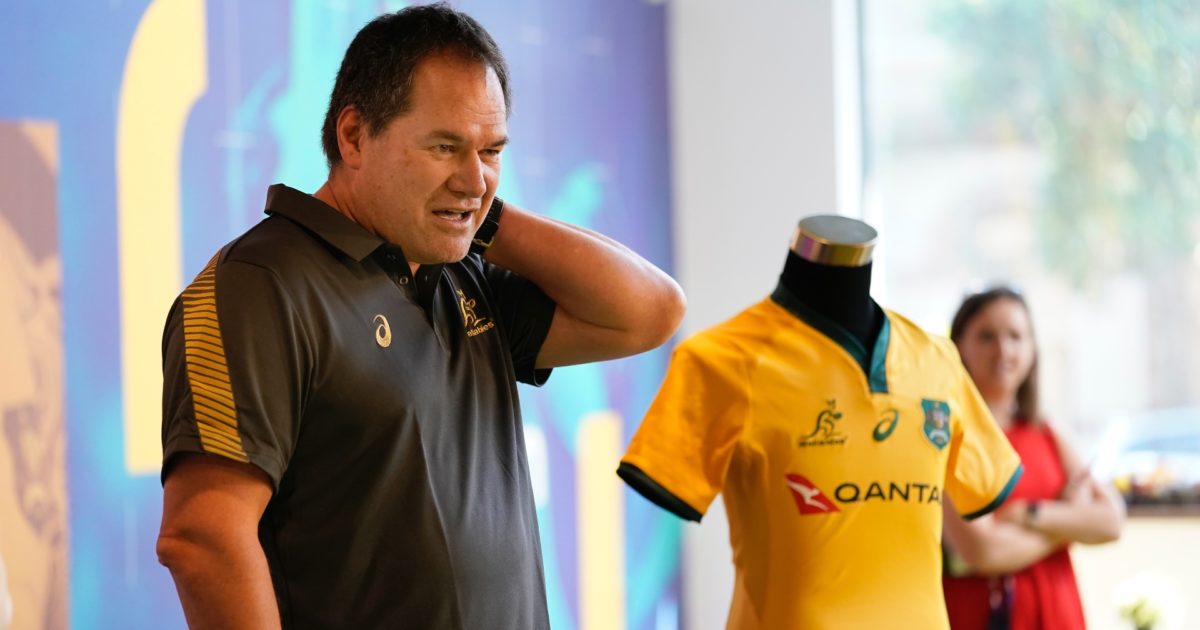Focus now shifts to Dave Rennie and whether he will still coach the Wallabies

The future of incoming Wallabies head coach Dave Rennie has become a worry for many Australian rugby fans in the wake of chief executive Raelene Castle’s resignation on Thursday. Her exit came shortly after eleven ex-Wallaby captains (although one – Michael Lynagh – rescinded his support) wrote a letter of no confidence to Rugby Australia, which proved to be the death knell for Castle’s tenure.
One of the major successes of the former Canterbury-Bankstown Bulldogs CEO’s time in charge was the appointment of Scott Johnson as director of rugby in 2019, as well as recruiting Rennie as head coach, who is set to take over at the end of his spell with Glasgow Warriors.
Rennie, who is succeeding the outspoken Michael Cheika, was a candidate in his native New Zealand to take over from Steve Hansen with the All Blacks, which is a sign of his pedigree and how this was an astute move by Castle. However, his ascension to the Wallabies role has now been cast into doubt.
With so many mixed signals, it is hard to know where Australian rugby stands following a difficult period adjusting to the economic impact of the coronavirus pandemic on the sport.
It had been widely reported over the past weeks that Rennie’s appointment was dependent on Castle remaining in her post. The outgoing CEO recently said that Rennie will become the coach regardless of her status but given the obscure nature of her departure, there is much doubt surrounding Rennie’s arrival.
If we lose Dave Rennie as Wallabies coach now too I’m going to cry. Imagine being obsessed with a sport that robs you of your hope every time you get a tiny ounch of it. pic.twitter.com/bpKCw4CWGc
— Ethan (@theseedypencil) April 23, 2020
If you were Dave Rennie would you want 10 ex Captains and a gutless board as your management team! Run l say…
— skipping dog (@Skippingdog) April 23, 2020
Can't see Dave Rennie hanging around now .. #AusRugby
— Tim Evans (@TimEvansSKY) April 23, 2020
Slow clap, Former #Wallabies Captains who signed the no confidence letter against @raelenecastle earlier this week….
You may have just also lost us a Coach with appropriate expertise to have broken our Bledisloe and World Cup droughts as well. 🤦🏼♀️ https://t.co/D7OSnOg3OM
— Kate Doak (@katedoak) April 23, 2020
This is perhaps the most damaging thing about the entire debacle for many Australians, that the national team may potentially lose out on a coach that was chosen to revive the stuttering Wallabies.
Castle presided over a tough and divisive few years in Australian rugby, a spell defined by the Israel Folau saga as well as her decision to keep Cheika in his head coach role despite the team faltering over a long period of time.
That is not to say there were many that supported her decisions in these cases, but they were such polarising situations that there were also swathes of people who were not happy.
https://twitter.com/MRrugbyworldcup/status/1253276773476790272?s=20
Dave Rennie the guy to watch now after Castle's resignation
— Adam Wakefield (@adamwake86) April 23, 2020
Her popularity has slumped in recent months given the Wallabies’ dismal performance at the World Cup alongside a decline in interest in Super Rugby, culminating in the loss of a longstanding broadcasting partner.
Now, in the aftermath of her departure, people are not only questioning whether that will bring an end to Rennie’s term in charge before it has even begun, but why the Kiwi would want the job anyway.













































